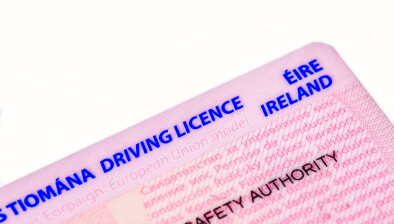High Court: Declaration granted where dismissed driving charge was reinstated

The High Court has granted relief in judicial review of a decision of the District Court to reinstate driving charge following its spoken order dismissing the charge.

About this case:
- Citation:[2023] IEHC 550
- Judgment:
- Court:High Court
- Judge:Mr Justice Barry O'Donnell
Delivering judgment for the High Court, Mr Justice Barry O’Donnell determined that whilst the “breast of the court” jurisdiction continues to be available, the reason given by the District Court for reinstating the charge did “not appear to have been motivated by any concern about the integrity of the hearing or the correctness of the decision”.
Background
On 26 January 2021, the gardaí stopped the applicant driving his vehicle in Dún Laoghaire. He claimed that he did not have his driving licence with him, but it was in his house. He was ordered to produce his licence and certificate of insurance or exemption at Ballyfermot Garda Station, but he failed to do so.
On 9 February 2022, the applicant came before Dún Laoghaire District Court on charges of driving without a licence in contravention of s.38(1) of the Road Traffic Act 1961, as amended, and of driving without insurance, contrary to s.56. The applicant pleaded not guilty to both charges.
The prosecuting garda gave evidence that he had ascertained that the applicant was disqualified from driving when he was stopped, and produced an email from the Road Safety Authority which he contended supported this position.
The applicant’s counsel cross-examined the garda in relation to the RSA document and made an application that there was “no case to answer” based on the Road Safety Authority email being inadmissible hearsay.
The district judge found that there was an issue as to when the disqualification period had commenced, and that a member of the Road Safety Authority should have attended to give direct evidence on this issue. The judge held that a reasonable doubt had been raised in respect of the s.38(1) licence charge and dismissed that charge as against the applicant.
The district judge was satisfied that there was still a case to answer in respect of the s.56 insurance charge, and the applicant gave evidence that he had insurance but had not brought the relevant documents to court. The judge decided to adjourn the s.56 matter to a later date, when the garda requested that the s.38 matter would also be reinstated and adjourned. The district judge acceded to this request, reinstating the s.38(1) charge and adjourning both matters for a de novo hearing.
The applicant brought judicial review proceedings, seeking an order of certiorari quashing the order made by the district judge vacating his previous order, and seeking a declaration that no lawful charge subsisted against the applicant for an offence pursuant to s.38(1).
The High Court
The respondent contended that the district judge erred in acceding to the application of no case to answer, as the evidence given by the garda was sufficient to trigger the statutory presumption in s.38. The respondent further argued that the decision of the district judge to vacate his earlier order and to reinstate the charge “remedied and removed any potential for a prosecution appeal by way of case stated arising from the original vacated decision”.
Mr Justice O’Donnell did not accept the respondent’s contention, being that the district judge was not requested to reinstate the charge on the basis that he had made an error, but rather, he simply acceded to the request made by the garda in order that evidence could be obtained from the Road Safety Authority.
The applicant argued that there was no case to answer, and so the district judge had no jurisdiction to vacate the order or to reinstate the charge against him. Mr Justice O’Donnell noted the judgment of Kennelly v. Cronin [2002] 4 IR 292 as authority for the continued availability of “breast of the court” concept, that “it cannot in all the circumstances be assumed that a spoken order is the final disposal of the proceedings”, and found that the District Court had jurisdiction to alter its decision.
Finding that it was unnecessary to consider the time that had elapsed between the initial spoken order and the decision to vary the order, the court considered that the question was whether the decision was made in a “fair and rational manner”.
Noting the words of Ms Justice Iseult O’Malley in Richards v. Donohoe [2017] 2 IR 157 that “the exercise of a judicial discretion in making a decision of this nature [a decision to reinstate a matter] requires an explanation, however brief”, Mr Justice O’Donnell was not satisfied that the mere fact that the second charge was to be adjourned was a sufficient explanation for reinstating the charge.
Stating that despite being “acutely conscious of the fact that the District Court operates to an extremely busy schedule and is required to dispose of a considerable amount of work under difficult time constraints”, the court was nonetheless dissatisfied that the manner in which the District Court exercised its jurisdiction was fair.
Considering that “on one level, the decision of the District Judge to reinstate the first charge could be treated as fair in the sense that it allowed both sides an opportunity to mend their hands or get their proofs in order”, Mr Justice O’Donnell highlighted that “the difficulty is that there had only been a concluded hearing on the merits of the first charge, and the hearing on the second charge was not concluded”.
Conclusion
Granting the relief sought by the applicant, the High Court decided that it was unnecessary to grant an order of certiorari as no formal order had been drawn up in the District Court, instead granting a declaration that no valid charge subsisted against the applicant for the s.38(1) offence. The court also granted the applicant his costs.
Corrigan v. The District Court for the County of Dublin & Anor [2023] IEHC 550











